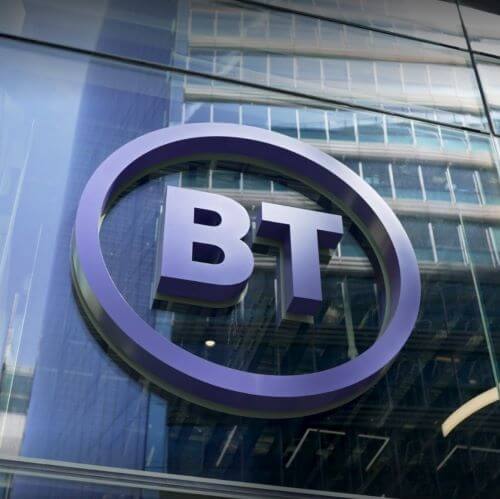Also in today's EMEA regional roundup: WindTre upgrades with Amdocs; Vodafone Portugal boosts UC offer with RingCentral; Ofcom rates telcos' customer service.

Also in today's EMEA regional roundup: WindTre upgrades with Amdocs; Vodafone Portugal boosts UC offer with RingCentral; Ofcom rates telcos' customer service.
BT plans to reduce its workforce by up to 55,000 by 2030 and become what CEO Philip Jansen predictably describes as "a leaner business with a brighter future." The proposed redundancies, which include both employees directly employed by BT and subcontractors, were revealed as BT published its full-year results. Jansen told the Guardian newspaper that AI could make around 10,000 human jobs in the company obsolete, with the lion's share of redundancies taking place in the UK. The two main labor unions to which BT employees belong, the CWU and Prospect, gave their reactions to the announcement, with the CWU describing the news as "no surprise" but Prospect declaring itself "deeply concerned" by the scale of the cuts. BT's announcement comes just two days after UK rival Vodafone revealed that it planned to cut around 11,000 jobs over the next three years. (See BT still stands for bloated telecom.) Figure 1:
 (Source: BT)
(Source: BT)Italian mobile operator WindTre has gone live with a new "monetization" platform supplied by Amdocs, the US-based software company. According to Amdocs, the platform, which is deployed entirely on Google Cloud, equips WindTre with an open, API-based IT infrastructure that offers improved performance and supports business growth.
Vodafone Portugal has teamed up with RingCentral to launch a unified communications offering aimed principally at small to midsized businesses. "One Net TeamCollaboration with RingCentral," to give it its full, unwieldy moniker, combines RingCentral's messaging and video collaboration capabilities with Vodafone's existing fixed and mobile voice communications functionality.
New research from Citizens Advice, a UK consumer rights organization, has revealed that as many as 1 million people in Britain cut off their own broadband last year as the cost-of-living crisis left them unable to afford Internet access. Not surprisingly, those in receipt of Universal Credit, a form of welfare payment, were particularly affected, being six times more likely to have stopped spending on broadband in the last 12 months compared to those not claiming Universal Credit. The uptake of discounted "social tariffs" for broadband also remains stubbornly low, with just 5% of those eligible for such tariffs benefiting from them.
Telecom Italia (TIM) has renewed its agreement with the Walt Disney Company for the distribution of the Disney+ streaming service with TimVision, the operator's TV platform.
AtlasEdge, a pan-European Edge data center provider, and LINX, one of Europe's largest Internet exchanges, have announced a new partnership, expanding the presence of both companies in the northern English city of Manchester. LINX Manchester is the Internet exchange point for the north of the UK, where more than 150 national and international networks are present.
Ofcom, the UK communications regulator, has once again been comparing the performance of providers when it comes to customer service. Among other things, the research revealed that Brits were more likely to be satisfied with their mobile provider (87%) than their broadband (82%) or landline company (77%). And, surprisingly perhaps, in these digital-native times, the most popular way by far for customers to contact their provider is still by phone, accounting for 77% of mobile customer contacts and 90% of landline and broadband contacts. Webchat was the next most popular way, lagging well behind at 17% and 6% respectively. Pity those broadband and landline customers of Shell Energy, however: The average wait time for Shell's call center staff to answer the phone was over eight minutes, by far the worst of the companies included in the survey.
— Paul Rainford, Assistant Editor, Europe, Light Reading
Read more about:
EuropeAbout the Author(s)
You May Also Like











